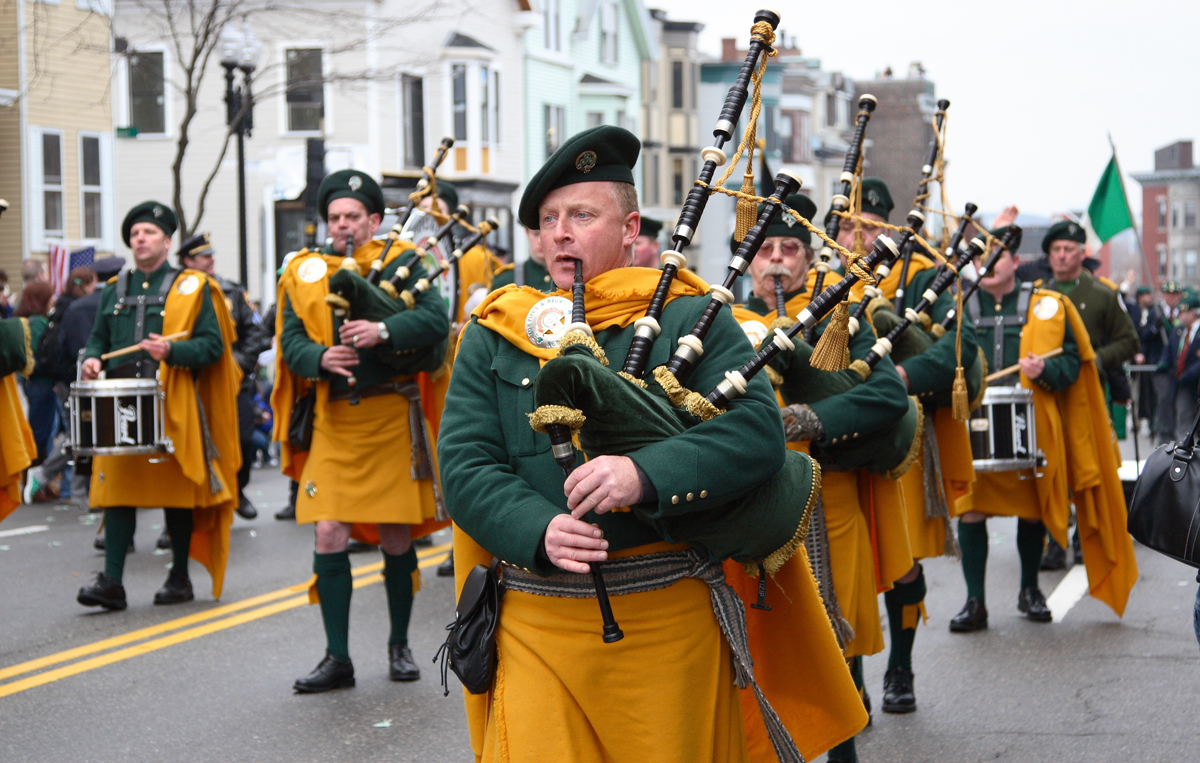Throwback Thursday: When There Was No St. Patrick’s Day Parade

IRISHMEN PLAYING BAGPIPES PHOTO VIA SHUTTERSTOCK
On March 12, 1994, papers carried the news that Boston would not be having its iconic St. Patrick’s Day parade through South Boston.
The previous day, the state’s Supreme Judicial Court ruled that the Allied War Veterans Council of South Boston, which sponsored the parade, could not exclude Irish-American Gay, Lesbian, and Bisexual Group of Boston from marching.
When an earlier court decision compelled the parade to allow an LGBT group in 1992, marchers were greeted with smoke bombs, beer cans, and signs with slogans like “AIDS cures gays.”
“They will never, ever march down the streets of South Boston as a group again,” John (Wacko) Hurley, president of the veterans’ council, said in the Boston Globe.
So, like a child who smashes a toy when ordered to share it with his sister, the Veterans Council decided in 1994 it would rather cancel the entire parade than allow the gay group to march.
Mayor Tom Menino tried and failed to get another group to sponsor the parade.
Mr. Menino said he had asked seven or eight other citizens’ groups in South Boston to take over the parade, but they refused.
“It’s solidarity,” the Mayor said. “They stayed together. Nobody stepped forward when I asked them to step forward. We’re losing a lot of Boston’s tradition by not having a parade.”
Instead, Menino hosted a “Party on the Plaza” at City Hall. Though it didn’t quite compare to the usual celebration, the Globe described it as a mostly nice event:
At City Hall, the normally drab plaza was festooned with balloons and decorations for the event. Corned beef sandwiches were moving briskly in the corner. “Shoot The Moon,” a popular band in local Irish pubs, entertained the crowd with rock music and oldies.
The SJC’s decision, of course, did not last long. The next year, the United States Supreme Court ruled that the Allied War Veterans Council did have the right to exclude LGBT groups from marching. After a year off, the parade was back on track. Menino, though, never again marched.
Fast forward 20 years, and we’re a few weeks away from an historic year. In December, parade organizers approved the application of a group called OUTVETS, which honors LGBT war veterans. When the group marches this year, it will be with the memory of a day there was no parade more than 20 years in the rearview mirror.

